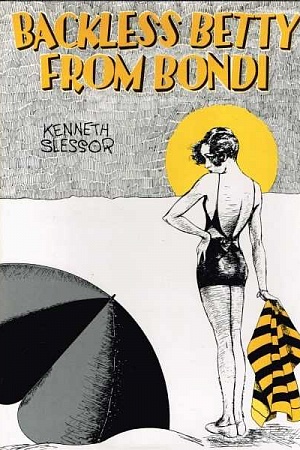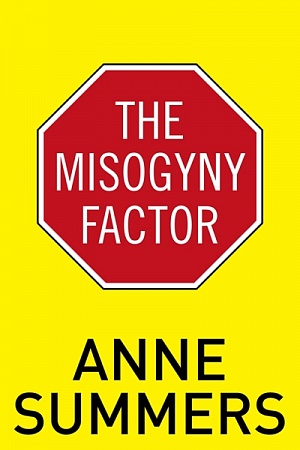Reading Australia: 'The Female Eunuch' by Germaine Greer
When Germaine Greer’s The Female Eunuch was published in 1970, it created a sensation. Within six months, it had almost sold out its second print run and had been translated into eight languages. Simone de Beauvoir’s The Second Sex, the influence of which critics see in Greer’s book, had come out in France in 1949. The Feminine Mystique, by American psychologist Betty Friedan, had been published in 1963 and was credited with sparking feminism’s second wave. Sexual Politics, a radical literary critique of masculine portrayal of women by another American, Kate Millett, also came out in 1970.
The Female Eunuch, however, was unique. It was a mixture of scholarship, stream of consciousness, and fiery populist polemic, peppered with statistics and quotations from classic literature, fitfully footnoted and full of shocking language. Thin on theory, it was a passionate and frequently self-contradictory call to arms. Greer did not advocate equality with men, but liberty for all. She thought as little of women alienated by patriarchy as she did of the men who profited from it: even a little less, perhaps, because men’s grip on ascendancy was at least self-serving. Indeed, some feminists criticised the book as misogynistic. Greer was seen as a child of privilege who admired men more than women, perhaps the legacy of her relationship with her own parents – an absent father, an abusive mother – who figure in frequent personal references in the book.
Many women, however, credited The Female Eunuch with giving them insight into their own lives that empowered and changed them forever. It described women’s subjective experience of a world in which men’s experience was set as the objective benchmark. It described women’s bodies, not as objects of male voyeurism, but as they felt from the inside. That included subjects that ‘nice’ women did not mention, such as menstruation, hormonal changes, pregnancy, menopause, sexual arousal, and orgasm. She also drilled deep into the mythologies of romance and marriage and motherhood, and the way women were conditioned from infancy to serve men within those socially and legally sanctioned institutions. Sex roles were not biological, she maintained, but man-made, and made so cleverly that women came to believe they desired their own repression.
‘Many women ... credited The Female Eunuch with giving them insight into their own lives that empowered and changed them forever’
In her foreword to the twenty-first anniversary edition, Greer acknowledged the changes that had occurred in women’s lives in the intervening years, the ‘many new breeds of women upon the earth’, from female bodybuilders and marathon runners to female army officers to women who write unsparingly about their own sex lives. She wrote about the ubiquity of women’s magazines talking frankly about sex, the widespread availability of contraception and a new recognition of geriatric sex. ‘What more could women want?’ she asked rhetorically, and replied: ‘Freedom, that’s what. Freedom from being the thing looked at rather than the person looking back. Freedom from self-consciousness.’ Freedom from constraining clothes, from the duty to stimulate jaded male palates, and much more. Decades later, into the twenty-first century, the rise of slut culture and the pornification of women’s fashions and behaviour, almost, it would seem, as a backlash against the second wave of feminism her book exemplified, is proving her right. Even formal structural change, such as equal rights legislation, has not guaranteed improvement. In 2015, the Australian Government announced that the gender pay gap had risen to 18.8 per cent, up from previous lows of fifteen per cent.
 The Female Eunuch (Paladin, 1971)
The Female Eunuch (Paladin, 1971)
Buy this book Greer was born in Melbourne in January 1939 and educated at the Star of the Sea convent school in the bayside suburb of Gardenvale. She earned her first degree in English and French at Melbourne University, her masters on the poet Byron at Sydney, and her PhD, on love and marriage in Shakespeare, at Cambridge. She pursued extracurricular interests: in Sydney, she was a member of the libertine Sydney Push; in Cambridge she joined the Footlights theatre group. She wrote for the notoriously satirical Sydney magazine Oz, and was a co-founder and editor of the Amsterdam-based pro-pornography paper, Suck. She was photographed naked for the cover of Oz, which annoyed some feminists. They may not have realised, however, that she had struck an agreement that the male editors should also pose nude, but they reneged: a comment on sexual double standards, even among radicals, in itself.
The Female Eunuch was published while Greer was a lecturer in English literature at Warwick University, where she is still emeritus professor in English Literature and Comparative Studies. It was her first book and catapulted her into celebrity. It is unorthodox in structure: divided into four parts, called Body, Soul, Love, and Hate, and each part divided into very specificsubsections such as Bones, Curves, and Hair, for example, in Body, and Altruism, Egotism, and Obsession in Love. On many of the pages, black-bordered boxes contain quotes spanning centuries of mostly masculine views of women, which form a kind of running slide show alongside her text. Some are beyond ghastly, such as Baudelaire’s post-coital description of the ‘gluey-sided leather bag of pus’ beside him; a few are sympathetic, such as Engels’s description of the modern family, based on ‘the open or concealed slavery of the wife’.
In her introductory Summary, Greer flags her direction. The ambitions of the old suffragettes, who won women the vote and entry into professions in the earlier twentieth-century, were too limited, she suggests: ‘The genteel middle-class ladies clamoured for reform, now ungenteel middle-class women are calling for liberation.’ She also flags her Marxism. While the suffragettes had faith in the existing political system and merely demanded admittance to it, the New Left, the ‘forcing house’ of many political movements including second-wave feminism, demands much more: the coming of the classless society and the withering of the state. Not for her Betty Friedan’s reformist National Organization for Women in the United States. Greer wants every woman to revolt. She expected the strongest criticism to come from ‘my sisters of the left’ she writes, ‘because of my fantasy that it might be possible to leap the steps of revolution and arrive somehow at liberty and communism without strategy or revolutionary discipline. But if women are the true proletariat [an unattributed reference to Engels] the truly oppressed majority, the revolution can only be drawn nearer by their withdrawal of support for the capitalist system.’ She is referring specifically to the withdrawal of (under)paid labour in industry, but also, tangentially, in the home.
‘She thought as little of women alienated by patriarchy as she did of the men who profited from it: even a little less, perhaps, because men’s grip on ascendancy was at least self-serving’
Greer begins The Female Eunuch with Body, she writes, in order to establish with certainty the degree of inferiority and natural dependence of women. She doesn’t hark back to some fabled golden age, but spends chapters outlining the reality of women’s lives that has always existed. Nor does she extol any notion of sisterhood: the women she describes are competitive with each other. In fact she finds little to laud in femininity at all, even while she is demanding the elevation of the feminine.
Few cultural figures escape her critique since they have built the terrain women must negotiate. While she praises Maslow for being able to see the feminine in his ‘self-actualising’ personalities, she hops into Freud for his whole castration construct. She provides a gloss on his explanation of ‘woman’: ‘(D)uring the necessary interval between maturity and mating, she expresses her sexuality in passive fantasies; only when impregnated is she completed, for the child signifies her lost genital and her achievement, the fantasies fade, the masochism-narcissism is replaced by energy in the protection and socialization of the child.’ Greer continues: ‘It is quite a neat description of an existing mechanism, and it has proved seductive even to female theorists, who did not dare to counterpoise their subjective experience against what seemed to be objective fact. Besides, it had a moral weight.’
 The Female Eunuch (Bantam, US edition, 1972)
The Female Eunuch (Bantam, US edition, 1972)
Buy this book And yet, Greer herself approaches Freudian terminology in her definition of the female ‘eunuch’ as a woman separated from her libido and from natural desire, fattened and made docile like a castrated animal, and deprived of any capacity for action. A key difference, of course, is that Freud thought he was describing essence, while Greer is describing social conditioning. This is why revolution, not reform, is required. Women have to cast off their conditioning in its entirety: the power imbalance of subordination to men, but also the internalised self-loathing that is assuaged and hidden by all the paraphernalia of patriarchal capitalism designed to enhance women’s objectified beauty and emotional quiescence: make-up, distorting clothing, feminine hygiene products, inescapable imprisonment in stifling marriages, sexual competitiveness among themselves and – something she underlines repeatedly – increasing and increasingly unnecessary consumerism.
The gloves really come off in the final section, Hate. No one, neither men nor women, she makes the reader realise, is happy in the existing system. ‘Women have very little idea how much men hate them,’ is her startling first line. She writes of boys and girls in an average English industrial town: the boys scoring sexual favours wherever they can and despising the girls who give them what they want. ‘They do not think more highly of the unavailable girls, for they find in such exclusivity only the desire to strike a harder bargain: these are the bitches, the others are the slags. A man is bound to end up with one or the other. Marriage is viewed with fatalism, soon you are sure to find yourself screwed permanently into the system, working in a dead-end job to keep a fading woman and her noisy children in inadequate accommodation in a dull town for the term of your natural life.’
What Greer imagines as possible is exploratory and rather wild. She throws open windows rather than seriously outlining possibilities: few of her suggestions are practicable or even significant. Perhaps women could live and raise their children together, somewhere pleasant like the rolling landscapes of Italy, with local people to tend house and garden. (She doesn’t say whether those local people would be liberated too.) Women should taste their own menstrual blood, in order to overcome inculcated disgust for their own bodies: after all no-one thinks twice about sucking a bleeding lip or finger. As Linda Colley wrote in the London Review of Books in 1999: ‘Properly and historically understood, Greer is not primarily a feminist. More than anything else, she should be viewed as a utopian.’
 The Female Eunuch (Harper Perennial Modern Classics edition, 2008)
The Female Eunuch (Harper Perennial Modern Classics edition, 2008)
Buy this book
The Female Eunuch is of its time in substance and style: slogans like ‘Right on!’ are amusingly anachronistic now. Greer recommends cooperatives and cooperative actions but, ever the intellectual, she also sees hippies as ‘limp’. Read as a document of its time, however, The Female Eunuch provides an illuminating benchmark. It is remarkable to realise how far women have come in the West in those scant forty-five years. But it is also remarkable to remember how unrealistically optimistic feminists were in the 1970s. They believed that wholesale change to the sexual organisation of Western society would come soon, and via women seizing political and economic power not merely by men ceding it. Greer could not have predicted the collapse of manufacturing in the West, which has lost many working-class women steady jobs; nor could she have foreseen the demise of unionism and the rise of zero-hours contract labour. And she certainly couldn’t have predicted the recent turn in women’s fashion – the ultra-high heels, the ultra-revealing clothing, the Brazilian waxes, the emaciation – which has weakened women physically and made them even more complicit in their own sexual objectification. Greer would have hoped her exposure of the truths about women’s subjugation would have hastened its end.
Some of her ideas are still shocking today, for the wrong reasons. She blames domestic violence for example, on the women who suffer it and lets the men off easily: ‘The degree of inebriation which is bitterly upbraided by women is so slight that it may be all but imperceptible. Much of the violence which drinking men wreak upon their women is provoked by their voiced or unvoiced reproaches.’ She discusses frigidity as a punishing expression of resentment that wives mete out to husbands. And the worst part is the circle of emotional dysfunction it creates in men: they feel both bestial and grateful when they are grudgingly allowed sex. Hypochondria is another expression of resentment, ‘often motivated by continual reproach and not organic at all’. In many places she seems to understand how men tick, but believes that few other women – ordinary women – do. She, by contrast, understands and even in places sympathises with masculinity and, as an extraordinary woman, can rise above its demands.
The Female Eunuch was written, in fact, by an extraordinary woman and it remains a landmark text. A seminal feminist work, it is also an important historical record of a period of dramatic social, political, and economic change.
References
Colley, Linda. ‘Stubble and Breath’, London Review of Books, 15 July, 1999
Cusk, Rachel. ‘The Female Eunuch, 40 years on’, The Guardian, 20 November, 2010.
Diamond, Arlyn. ‘Elizabeth Janeway and Germaine Greer’, The Massachusetts Review, Vol. 13, No. 1/2, Woman: An Issue (Winter–Spring, 1972).
Fogarty, Michael P. Review of The Feminine Mystique by Betty Friedan; Patriarchal Attitudes by Eva Figes; The Female Eunuch by Germaine Greer; Sexual Politics by Kate Millet; Woman’s Estate by Juliet Mitchell; Sisterhood Is Powerful: An Anthology of Writings from the Women’s Liberation Movement by Robin Morgan; Voices from Women’s Liberation by Leslie B. Tanner, International Review of Vol. 19, No. 1, The Education of Women (1973).
Nowra, Louis. ‘The Better Self? Germaine Greer and “The Female Eunuch”’, The Monthly, March, 2010.
Presser, Harriet B. ‘Feminism and the Status of Women’, Family Planning Perspectives Vol. 4, No. 2 (April, 1972).











Comment (1)
Leave a comment
If you are an ABR subscriber, you will need to sign in to post a comment.
If you have forgotten your sign in details, or if you receive an error message when trying to submit your comment, please email your comment (and the name of the article to which it relates) to ABR Comments. We will review your comment and, subject to approval, we will post it under your name.
Please note that all comments must be approved by ABR and comply with our Terms & Conditions.